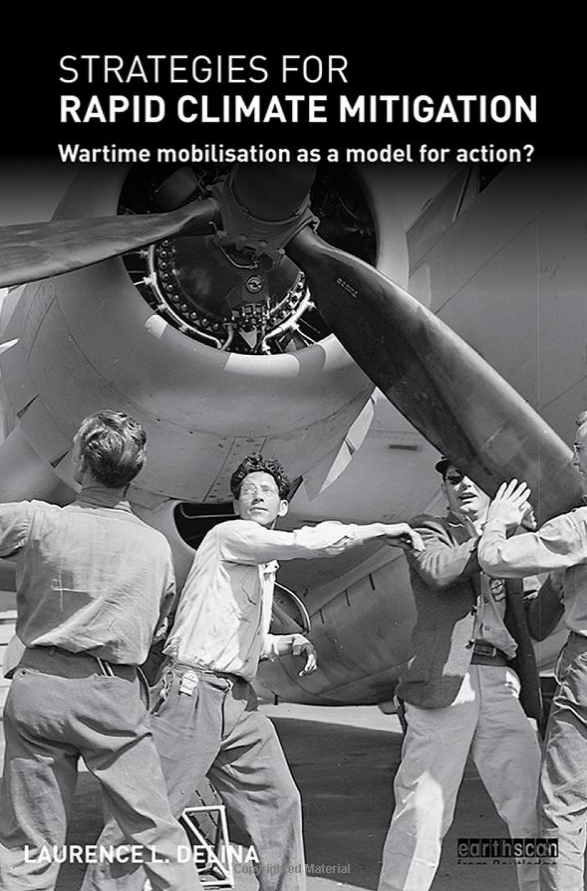Laurence Delina Discusses New Book, Strategies for Rapid Climate Mitigation
Laurence Delina, a post-doctoral associate at the Frederick S. Pardee Center for the Study of the Longer-Range Future, discussed his recent book, Strategies for Rapid Climate Mitigation, at a Pardee Center seminar on September 27, 2016.

In the book, which was published in June by Routledge Press, Delina explores whether the rapid mobilization in preparation for World War II is an appropriate analogy for the scale and speed required for an effective response to climate change in the 21st century.
At the seminar, Delina argued that the pace of clean energy deployment is the greatest challenge to achieving intended emissions reductions. He noted that the Intergovernmental Panel on Climate Change’s (IPCC) fifth assessment report concluded that global emissions would need to peak by 2030, and begin to decline by 2050, in order to remain below a 2 degrees Celsius increase. Historically, global energy transitions have played out over much longer timescales, therefore more governmental intervention would be needed to spur an accelerated energy transition.
Delina pointed to the rapid mobilization of finance, labor, and governance seen in the United States in the early 1940s as an analogy of the pace and scale needed to reach emissions reductions targets. He suggested that a carbon tax or emissions trading system, in addition to climate mitigation bonds and increased private sector participation, could approximate the impact of the universal income tax and increased public borrowing that resulted in a rapid increase of the U.S. defense budget by 1944. Delina also argued for labor availability analyses, retraining programs, and new university degree programs to rapidly scale the labor force, and for a special department within the executive branch to coordinate across agencies and the private sector, which has wartime precedent.
Delina acknowledged several technological, social, and political limits to this model for climate action — particularly public acceptance of climate science and of a centralized role of government — which he explores at great length in the book.
Delina, a citizen of the Philippines, is leading a project at the Pardee Center on sustainable energy transitions in developing countries.
